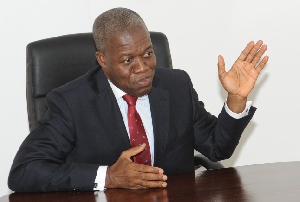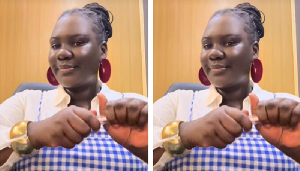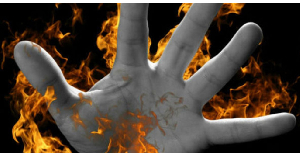Cuba has observed its 55 years anniversary of establishing diplomatic relations with Ghana, applauding government for showing solidarity to the Cuban Revolution and the release of the five Cubans incarcerated in US prisons for years.
“Cubans never forget that Ghana was the first African country, south of the Sahara, to recognize the Cuban revolution,” said Mr Jorge Lefebre Nicolas, Ambassador of Cuba to Ghana.
“We also appreciate the support found in the Ghanaian Government to the cause of the Cuban Five but most particularly the Cuban people deeply appreciate the support of the Movement of Solidarity with Cuba”.
He observed that the restoration of diplomatic relations between Cuba and the United States had far-reaching implications for both countries and for the entire inter-American relations.
The Cuban Five, also known as the Miami Five, are Gerardo Hernández, Antonio Guerrero, Ramón Labañino, Fernando González, and René González.
They are intelligence officers arrested in September 1998, and later convicted in Miami of conspiracy to commit espionage, conspiracy to commit murder, acting as an agent of a foreign government, and other illegal activities in the United States.
Mr Nicolas noted that Ghana led the way for diplomatic recognition of Cuba in Africa where his country enjoyed many good and deep ties today.
He described the mechanism of political consultations between Cuba and Ghana on international and regional issues both countries had maintained over the years as a “real mechanism of diplomatic cooperation under a deep spirit of South-South cooperation.”
“These consultations are particularly important in today's globalized world, where states face a large number of political, economic, social and financial challenges, and we must reinforce it,” he said.
The Ambassador said the solidarity movement in Ghana added to the international struggle for the release of the Cubans Five that were serving what described as “unjust prison sentences in US jails for opposing terrorist groups”.
According to Mr Nicolas, Ghana was one of the first countries to create a Campaign for the Cuban Five, and subsequently various Ghanaian governments over the years had also given material solidarity in the form of food donations, raw materials and fuel during the difficult times of the Cuban Revolution.
He, however, expressed dissatisfaction that over the 55 years, Ghana and Cuba had not done much to develop a commercial relationship and trade at the same level as the political and bilateral ties.
Vice-President Paa Kwesi Amissah Arthur noted that bilateral relations between the two nations suffered set-back in the 1960s, but expressed satisfaction that there had been some remarkable achievements after renewed relations in the 70s.
He said Ghana and Cuba relations thrived largely on social and economic justice as well as equity geared towards improving lives of the people.
Mr Amissah also lauded the Cuban medics’ services to rural Ghana and their healthcare system in general, saying it had become a diplomatic tool of success.
Hundreds of Cuban doctors, teachers, and sports coaches have served in Ghana over the years in the field of health, agriculture and sports.
In all the years, nearly 1200 Ghanaian students have graduated from scholarships offered by Cuba in various specialties.
In 2004, a Cuban programme for the eradication of malaria with technical advice and biological products from the Cuban company, Labiofam, began to work in Ghana to flush out mosquitoes responsible for the disease.
From 2006 a new phase in the project was initiated, which continues today, despite economic difficulties of both parties.
Mr Amissah expressed the hope the bilateral relations would continue to flourish for the mutual benefit of the two nations.
Ms Hannah Serwa Tetteh, Minister of Foreign Affairs and Regional Integration, described the relationship between the two nations as that of “brothers and sisters” that created opportunities for Ghanaians in Cuba and for Cubans to do business in Ghana.
General News of Friday, 26 December 2014
Source: GNA













